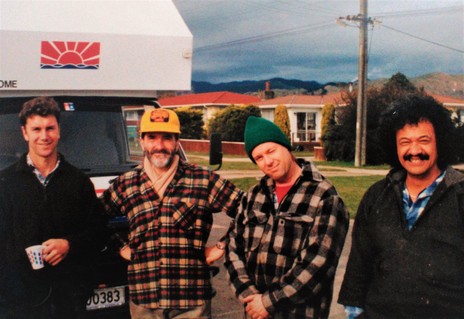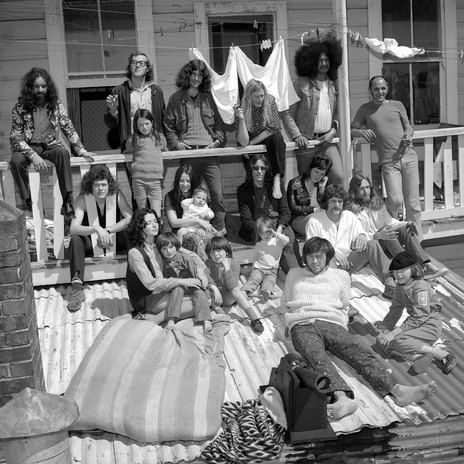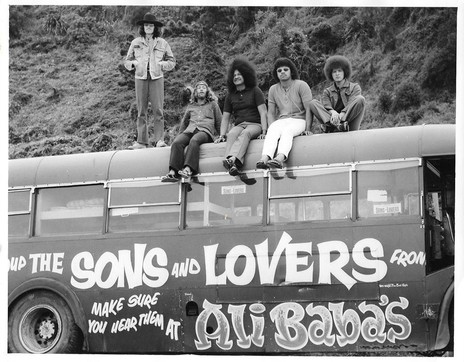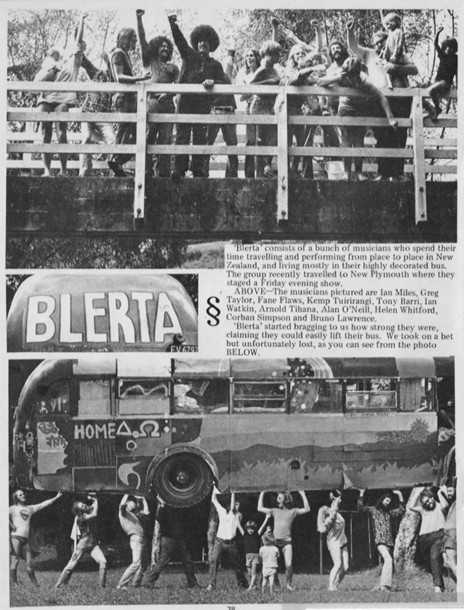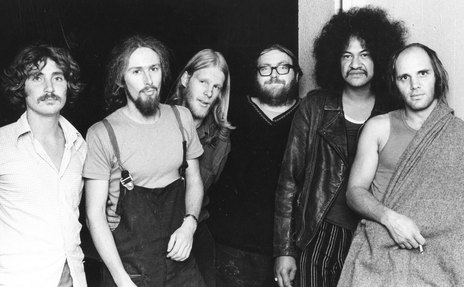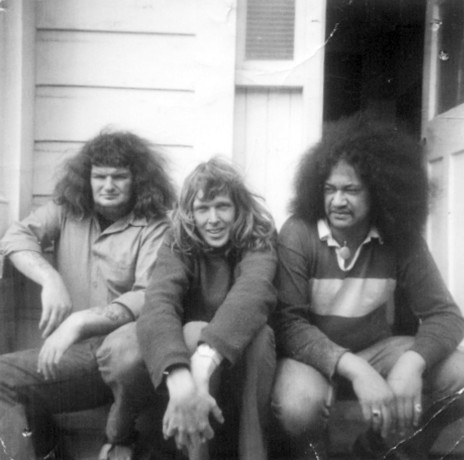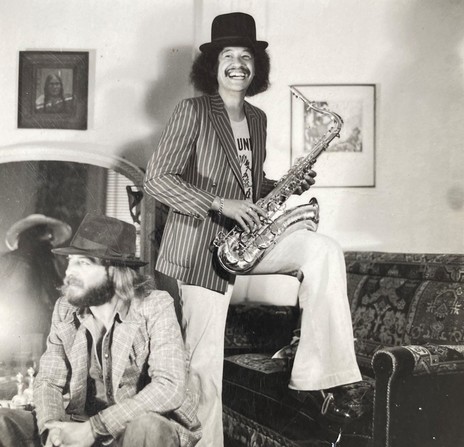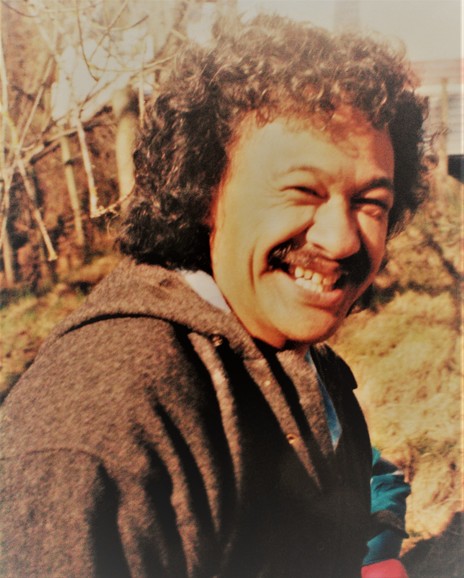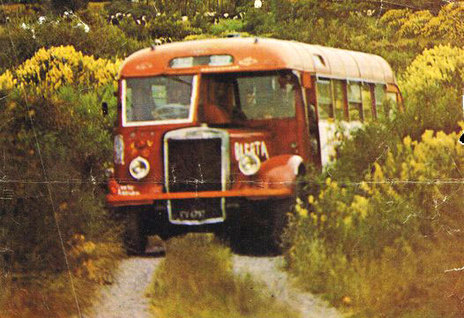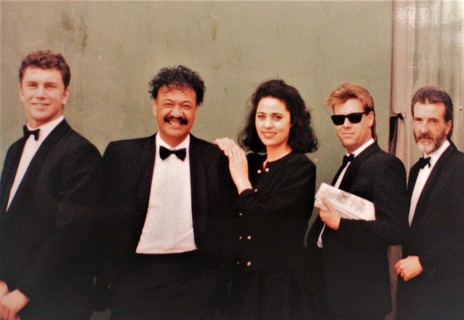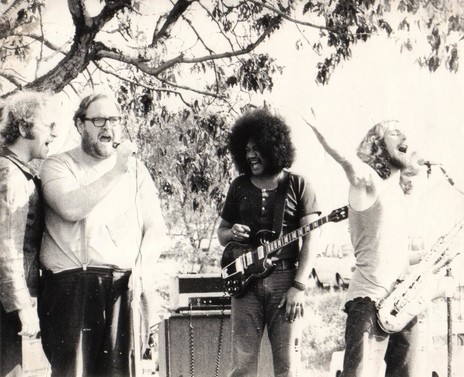While playing guitar in the high school band in the early 1960s he did the usual round of talent quests, including Johnny Cooper’s Give It A Shot around 1962/63. His first band proper came shortly after. “The drummer was Gary Johnson and he said, ‘we’re called the G-Jays’ so the G-Jays it was. Like a lot of guitarists of that era, my first musical hero was Hank Marvin, and the G-Jays played all those Shadows hits.”
An early band was the Sounds Of Silence. “We were not very silent.”
Next up was The Sounds Of Silence. “We called ourselves that because we were not very silent. We’d discovered amplifiers and noisy rock’n’roll. I bought a fuzz box purely because of that Rolling Stones song – ‘da da dada daa’ – and I thought what is that? [‘Satisfaction’] The problem was there was nothing else I could play with it, although the Animals used it on a few songs and then along came Clapton and Hendrix.”
In 1969 Kemp was employed as a forestry worker when he travelled to Wellington to successfully audition for the resident band at the Ali Baba’s nightspot. The band, Sons & Lovers, had been formed in Tauranga by Corben Simpson the previous year but was in disarray. Kemp joined the same time as Nelson vocalist Peter Leef, and the line-up was completed with organist Alan Moon, bassist Steve Marriner and drummer Ali Matthews. “I was about 20 when I moved to Wellington,” Kemp says, “and I’ve played in bands ever since.”
Sons & Lovers remained at Ali Baba’s for almost two years. The band’s repertoire was “whatever was on the radio and whatever was selling in the shops at the time.”
“It was very much a learning curve for me,” Kemp says, “living in the city, playing night after night until four in the morning. The place would be jam-packed every night.”
Kemp’s longtime friend, musician Glenn Timihou (Creation, Tapestry, etc) remembers his arrival in town. “There was a bit of a buzz about Kemp from the beginning – who is this guy? I ended up flatting with the Sons & Lovers guys and Kemp and I shared a room, first up-best dressed, and we’ve been close friends ever since, and playing together too.”
Sons & Lovers had a manager, Alan Judd, and it was his idea to purchase a bus, a former Wellington City Council 1948 Leyland Tiger, which was to go onto greater fame when it was later purchased by Bruno Lawrence and became the BLERTA bus. Taking occasional breaks from their Ali Baba’s residency, Sons & Lovers would play in other parts of the lower North Island.
Shortly after the nightclub residency came to an end in 1971, it was decided to sack their manager. “The only problem now,” Kemp says, “was we had to find our own gigs and, you know, get a day job.”
Bruno bought the Sons & Lovers bus and Kemp came with the bus.
The band soon fell apart, but by this stage Kemp had fallen in with a circle of musicians which included Bruno Lawrence and Geoff Murphy. “Bruno was looking for musicians for what became BLERTA,” Kemp remembers, “and he bought the Sons & Lovers bus and me and Moony came with the bus.”
Kemp was there at the very beginning of the BLERTA experience, the lower North Island tour which introduced the nomadic troupe to New Zealand audiences, and the following South Island tour which brought them the beginnings of acceptance. But it was a lifestyle which didn’t wholly appeal to Kemp Tuirirangi.
“Sometimes I would tour and record with the band, other times Chas Burke-Kennedy would be the main guitarist. After one tour I told Bruno I was leaving and he said, ‘no, we’re going to Australia’. I didn’t want to miss out on that so I hung in. I’d just gotten married so that sort of served as our honeymoon. We did a couple of university gigs but, really, money was scarce and after two or three months I said, ‘I’ve got to go home and get a job.’”
Back in Wellington, Kemp replaced Kevin Furey in Tanglefoot, who had inherited the Ali Baba’s residency; the line-up was Kemp, the former Sons & Lovers vocalist Peter Leef, keyboardist Brent Thomas, bassist Murray Loveridge and drummer Mike Phillips.
Kemp says, “Over the next two or three years I played in three or four bands at Ali Baba’s, musicians came and went, different band names. A couple of guys from Shriek Machine played with us for a while – I think they’d won a battle of the bands and they went on to form Collision.
“It became harder and harder as the decade went on. We couldn’t settle on a lineup to keep the people there. It was a new generation coming through, even though it was really only four or five years later, but we just couldn’t find the music to fit, crowds dwindled. Disco came in and changed things, the kids wanted that, that was the new buzz.”
Leaving Ali Baba’s behind, Kemp then joined Crazy Mama, basically a vehicle for vocalist Krissy Klocek; the other band members were keyboardist Brent Dempsey, bassist Eddie McDonald and drummer Roland Farmer. They played the Wellington traps, including a weekly residency at the Royal Tiger Tavern.
In the years since, Tuirirangi has remained active as a musician, although generally holding down a day job. Keeping track of the comings and goings is difficult. “One minute I’m playing in this band and the next I’m playing with these other guys at some other gig,” Kemp says. “And then, whoops, he’s leaving and that’s the end of that band, better get another day job I suppose.”
There was a spell in the 1990s with DDT – a band led by Kemp’s old buddy Glenn Timihou – and over the past dozen-odd years he’s led his own occasional outfit, The Kemptones. The current line-up features Kemp and Dougal Spier on guitars, Paul du Fresne on bass and Roger Watkins on drums. The band has enjoyed a lengthy residency at Wellington’s Hotel Bristol and have played widely in the lower North Island and upper South Island.
There is also another current band, the Grafia Blues Project. “That band,” Kemp explains, “features a doctor in the Wairarapa, Rob Maunsell, who has now decided that he’d like to play in bands, he loves the blues.
“I don’t think I’m ever going to stop playing, I just love it. It’s a gig and it’s been a privilege to entertain so many many people over these 50 or so years, I wouldn’t change anything.”
--
Kemp Tuirirangi passed away on 19 June 2020, aged 71.
